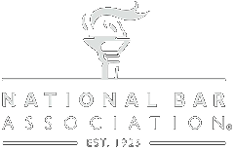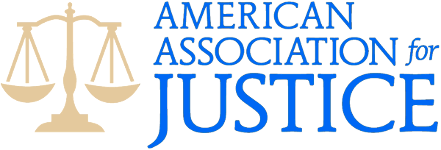Welcome to WordPress. This is your first post. Edit or delete it, then start writing!
Head and Brain Injuries 101
Hurting your head during an accident causes excruciating pain and incurred injuries can instigate long-term effects. Deep wounds can damage the brain and result in death if immediate medical attention is not provided. Head and brain injuries are traumatic, as they can lead to colossal physical, mental, and financial losses. Finding yourself in this kind of situation gets worse, when it wasn’t even your fault. It is impossible to say how much your claim could be worth. The amount of compensation you deserve depends upon the seriousness of the injury and the burden of liability.
Common Causes of Head and Brain injuries
While most injuries are unpredictable, there are situations where a person is at higher risk. The probability of incurring a head or brain injury is greater in some professions and under certain circumstances. Car crashes/roadside accidents are a frequent cause of severe physical damages. About 15% of head and brain injuries are the result of traffic collisions; victims include drivers, bikers, and pedestrians. Racecar drivers and delivery personnel are more susceptible, as their profession tends to impose risky endeavors.
Surprisingly, slip and fall accidents are the major cause of head and brain injuries, accounting for more than 40% of the total occurrences. Most slip and fall injuries that qualify for compensation happen at the workplace. Worker’s Compensation Insurance provides coverage for medical bills and lost wages; punitive damages are typically not redeemable. Constructions workers are the most vulnerable to severe slip and fall accidents, given the tough nature of their job. About 10% of harmful head and brain injuries are the consequence of domestic violence and assault. Defective products are also a recurring cause of fatal head and brain injuries. For example, poorly built structures and slippery floors in commercial areas could be the reason for the unfortunate incident.
Aftereffects of Head and Brain Injuries
The severity of a head or brain injury is directly dependent on the impact of the accident and your health conditions before the accident. There is a range of symptoms that may arise, immediately or after some time. The injuries can be divided into two categories, namely closed head injuries, and open head injuries. Closed head injuries may not exhibit wounds or fractures on the exterior; this means your skull is intact, but there could be internal bleeding. Open head injuries may display a cracked skull and expose damaged brain tissue.
Symptoms of Mild Injuries:
- Concussion
- Headache
- Dizziness
- Nausea
- Confusion/temporary memory loss
- Imbalance
Symptoms of Severe Injuries:
- Blacking Out
- Amnesia
- Seizures/convulsions
- Slurred speech
- Tingling sensations
- Dilated pupils
- Sensitivity to light and sound
- Depression and Mood swings
- Loss of senses (sight, smell, hearing)
- Paralysis
- Difficulty in speaking and bodily movement
- Sleeping problems
- Chronic pain
- Fluid discharge from nose and/or ears
- Coordination and concentration issues
Filing a Claim
Whether you hurt your head in a car crash or during a slip and fall accident at work, the defendant’s insurance company shall pay for you loss. However, it is integral to prove that the defendant was primarily responsible for the damages. If it turns out that you were partially at fault, your compensation reward could be reduced or dismissed. Personal Injury Attorney in Greenwood Village, CO warns that insurance providers will try to trick you into a meager settlement or defy the claim altogether. A professional lawyer is mandatory to build a strong case and maximize your benefits.
Hello world!
Welcome to WordPress. This is your first post. Edit or delete it, then start writing!
How to file a Workers Compensation claim?
How to file a Workers Compensation claim?
Workers’ Compensation can be filed for, when an employee becomes injured or ill at work. It provides reimbursement for medical expenses, rehabilitation and lost wages. The claim must be filed for and state’s procedures should be followed in order to get any benefits obtained from workers’ compensation.
The financial recovery of an injured worker mostly gets limited to the available compensation claim under the worker’s state. The laws of worker’s compensation benefit both parties participating in a work injury claim. The injured party is supposed to file a lawsuit in order to recover the loss. A claim can also be submitted directly to the employer’s workers’ compensation insurance carrier. It is not necessary that the employer will face a large damage award because compensation laws for workers have fixed specific amounts on the basis of injuries caused to the worker.
How to file a Workers’ Compensation Claim?
After the injury, medical care should be sought immediately. The employer should be informed of the injury as soon as possible. Different states require different time limits to notify the employer. Some states require a time limit of one month while others require it be from a few days to two years.
If the employer does not cooperate in filing a workers’ compensation claim, the local workers’ compensation office should be contacted. In order to begin the process of workers’ compensation, the claim forms should be filled out and submitted. After completion of the form, it becomes the obligation of the employer to submit your form to a suitable insurance carrier. Employees in need of workers’ compensation may also be required to file a claim to state’s workers’ compensation agency other than his/her employer. This depends on the laws of the state. Filing a separate claim has a time limit as well which can be a year after the injury, or shorter, depending upon the laws of the state.
The claim gets approved if the employer or the insurance company does not have any objection with it. In such a case, an adjuster from the insurance company contacts the employee himself or the employer and provides him with any instructions about the procedure of submitting medical bills for payment. Sometimes, things have to be settled the hard way. The employers, at times, fight the right of employees to benefits. This is done in order to stop the workers’ compensation rates from rising steeply, which can be responded by preparing good documentation comprising of medical records of the injury and treatment.
In case of temporary injuries that do not result in the loss of income, payment for medical bills is the extent of the workers’ compensation claim. If the individual is unable to work for the time being due to the injury, he/she will be provided reimbursement through checks for lost wages. This is provided within a week of approval of the claim. Notification to the insurance company for discontinuation of checks is sent by the employer after the recovery of his employee.
Author Bio:
The Smith Law Firm, PC provides a full spectrum of legal services with specializing in estate planning, personal injury and bankruptcy law.












